Custom alerts and data visualization let you quickly identify and prevent latency problems and other performance issues.
The telecommunication standardization sector of the International Telecommunication Union (ITU-T) provides many recommendations with regard to quality of service. When it comes to latency, the ITU-T recommends that delays be no more than 125 milliseconds.
We have somewhat stricter requirements than the ITU-T, for we recommend a maximum latency of 100 milliseconds.
The reason: with a lower latency threshold value, you can be notified in due time and intervene before your coworkers notice that something is awry.
Our Paessler PRTG latency monitoring software simultaneously monitors your servers, routers, and switches. It keeps a constant eye on all your QoS parameters. Latency, packet loss, jitter, and the mean opinion score are monitored 24/7/365.
If something goes wrong, you’ll be notified at once so you can immediately recognize and solve the causes of latency issues or other network problems.
PRTG even lets you create reports and gives you the opportunity to compare data over long periods of time.Something powerful
PRTG’s more than 250 preconfigured sensors make it quick and easy to set up your network monitoring – including QoS monitoring and the crucial parameters that go with it.
During installation, PRTG runs its Auto-Discovery feature and automatically creates sensors within your IP address range.
With the free trial of PRTG, you can try all the software’s functionalities with no risk. The free trial version is perfect for getting a feel for PRTG, no strings attached.
PRTG is a product of Paessler GmbH, whose headquarters are in Nuremberg, Germany. Paessler has been a respected leader network monitoring tools for over 20 years.
PRTG is our brainchild, and at the core of our daily work. More than 500,000 network administrators worldwide put their trust in PRTG – a software made in Germany.
Diagnose network issues by continuously tracking network performance monitoring. Show latency, throughput, RTT, network connection speed, network traffic, and other key metrics in real time. Visualize monitoring data in clear graphs and dashboards to identify problems more easily. Gain the overview you need to troubleshoot high latency, bandwidth bottlenecks, and other network latency issues. .
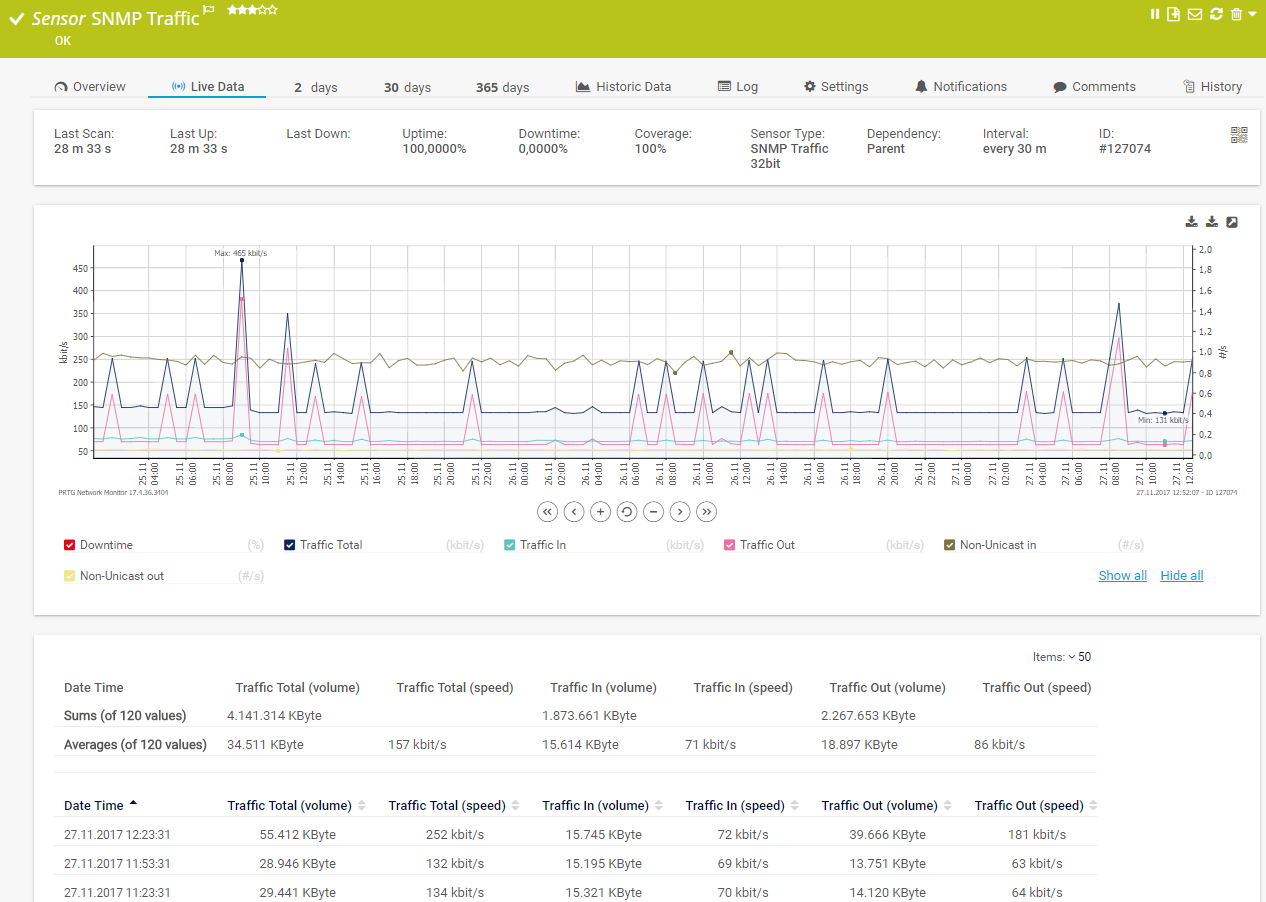
Live traffic data graph in PRTG
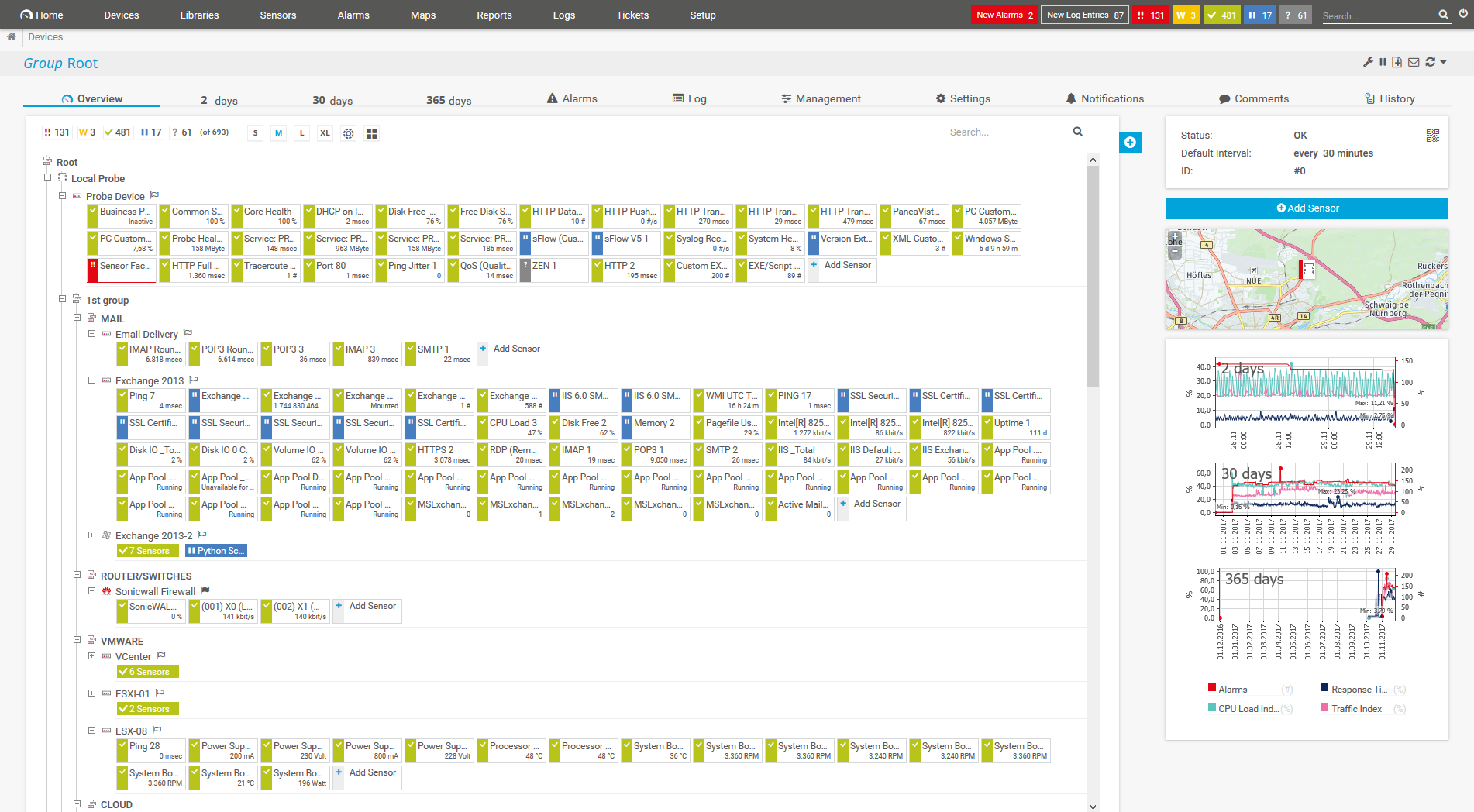
Device tree view of the complete monitoring setup
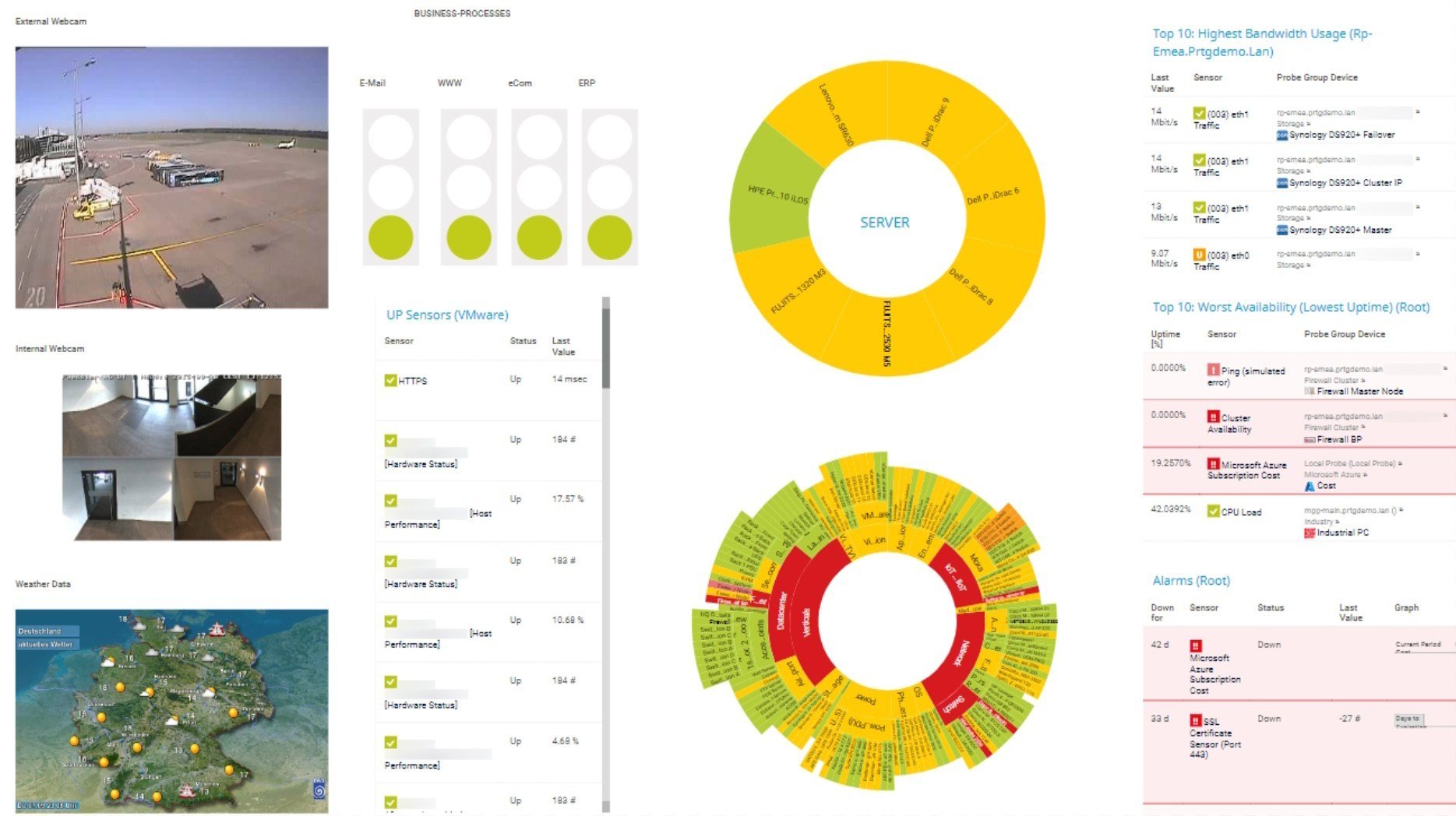
Custom PRTG dashboard for keeping an eye on the entire IT infrastructure

Live traffic data graph in PRTG

Device tree view of the complete monitoring setup
PRTG comes with more than 250 native sensor types for monitoring your entire on-premises, cloud, and hybrid cloud environment out of the box. Check out some examples below!
See the PRTG Manual for a list of all available sensor types.
Custom alerts and data visualization let you quickly identify and prevent latency problems and other performance issues.
Set up PRTG in minutes and use it on almost any mobile device.
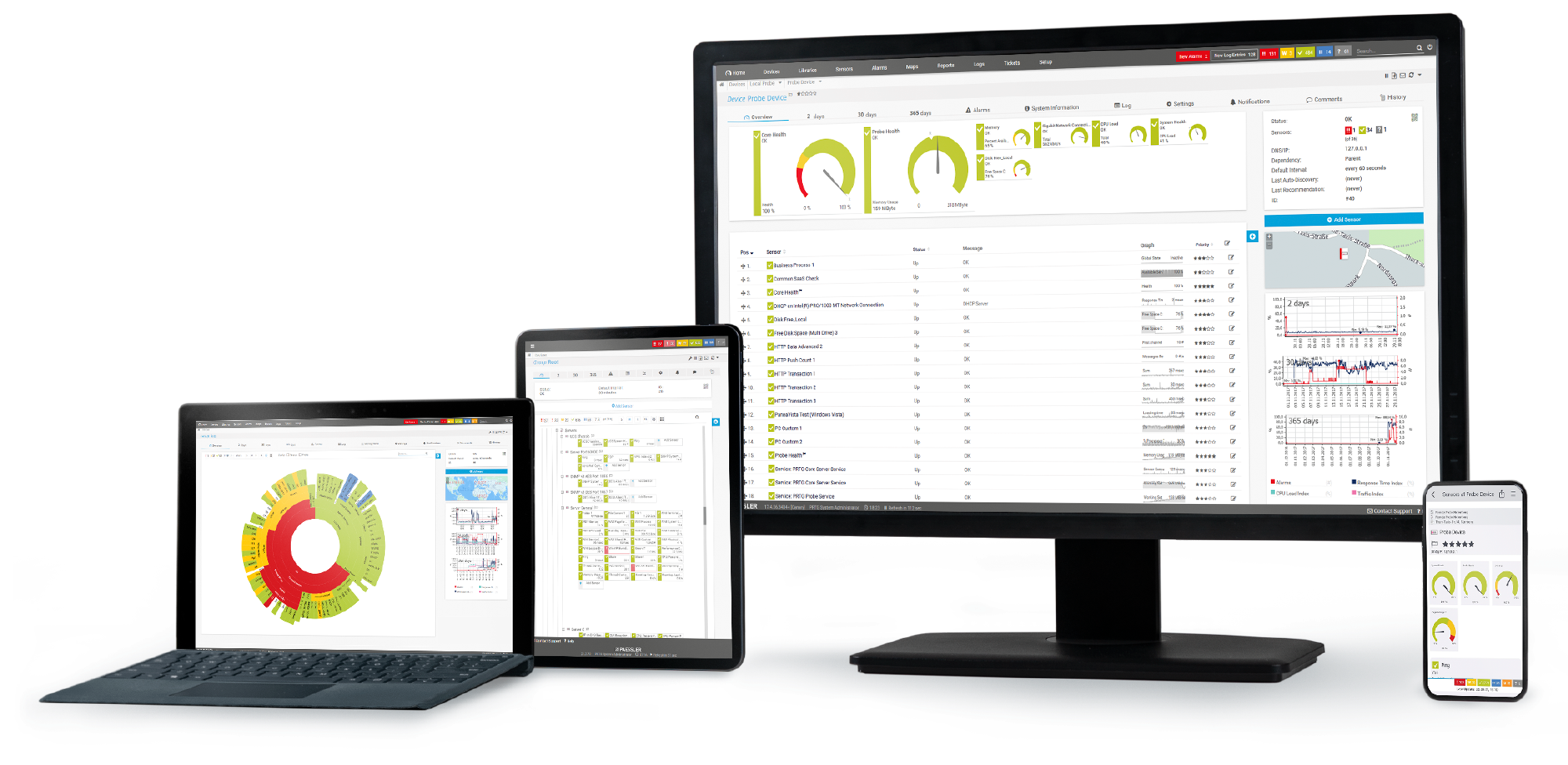
“Excellent tool for detailed monitoring. Alarms and notifications work greatly. Equipment addition is straight forward and server initial setup is very easy. ...feel safe to purchase it if you intend to monitor a large networking landscape.”
Partnering with innovative IT vendors, Paessler unleashes synergies to create
new and additional benefits for joined customers.
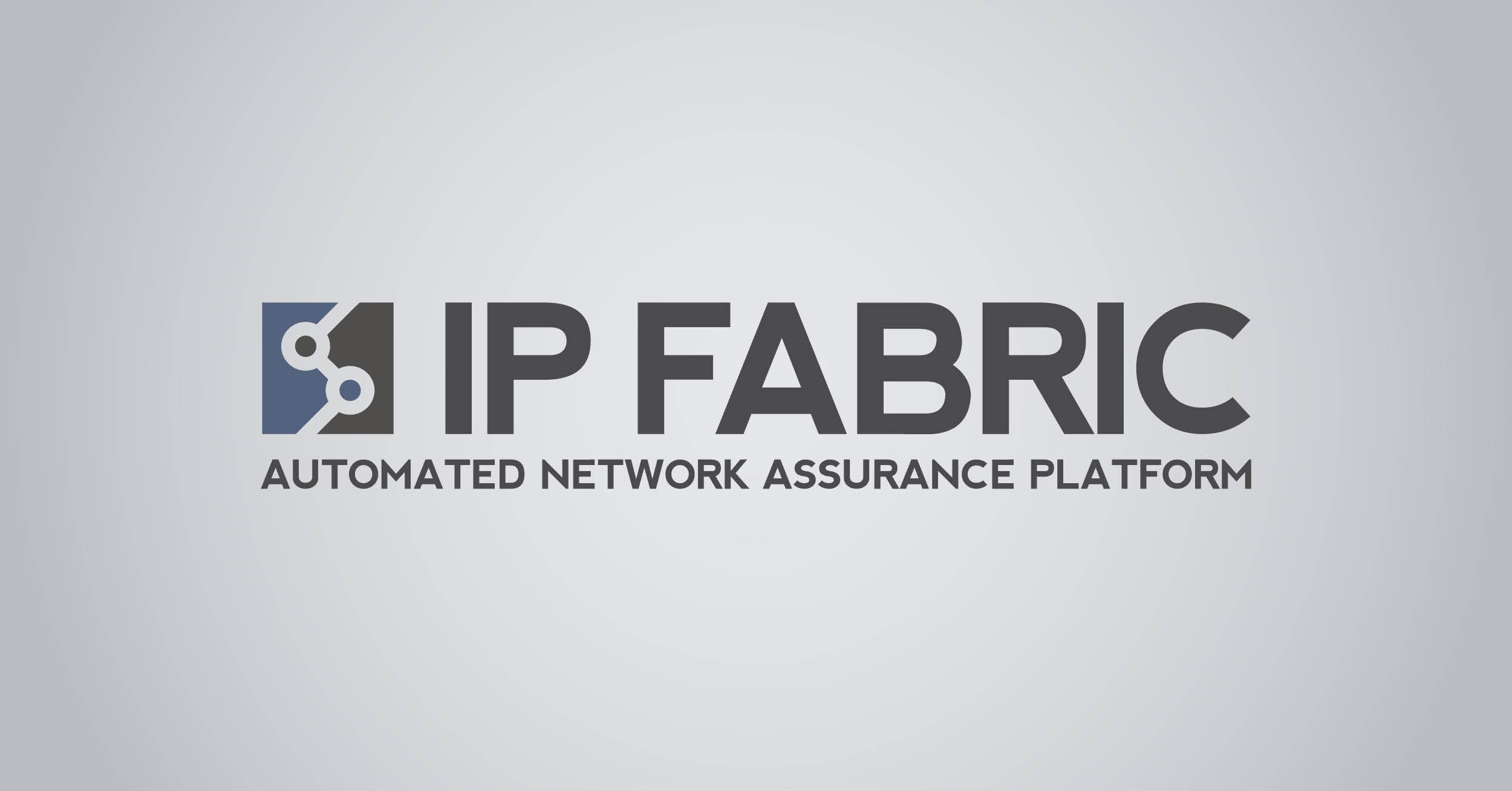
Combining PRTG’s broad monitoring feature set with IP Fabric’s automated network assurance creates a new level of network visibility and reliability.

Paessler and Plixer provide a complete solution adding flow and metadata analysis to a powerful network monitoring tool.
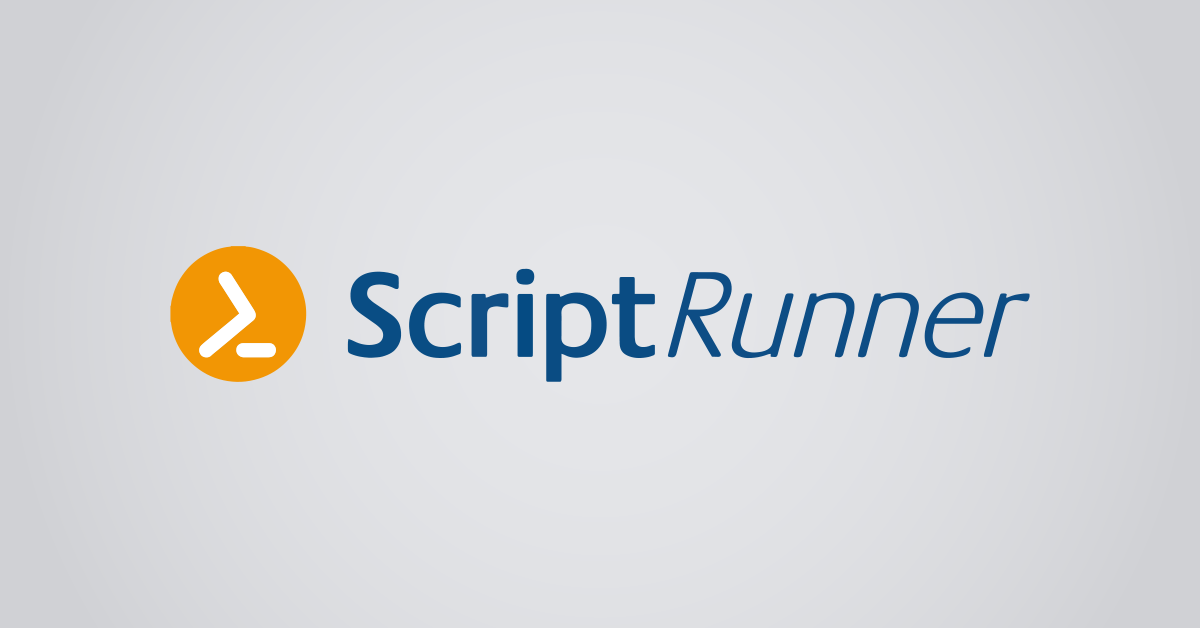
With ScriptRunner Paessler integrates a powerful event automation platform into PRTG Network Monitor.
Real-time notifications mean faster troubleshooting so that you can act before more serious issues occur.
Network Monitoring Software – Version 24.4.102.1351 (November 12th, 2024)
Download for Windows and cloud-based version PRTG Hosted Monitor available
English, German, Spanish, French, Portuguese, Dutch, Russian, Japanese, and Simplified Chinese
Network devices, bandwidth, servers, applications, virtual environments, remote systems, IoT, and more
Choose the PRTG Network Monitor subscription that's best for you
Latency is a measurement of the time it takes for a data packet to travel from one point to another. This time is referred to as latency, the round-trip time, or the packet processing time.
By keeping latency spikes to a minimum, you can improve the stability of your network. When latency is too high, problems with VoIP and video conferences are likely to arise. Furthermore, transmission errors can prevent images from loading. Such latency issues are sure to push the capacities of your IT department to the limit.
Do a one-time latency test and use a simple ping query to obtain a one-time calculation of latency. Latency (or the ping time) is equal to the amount of time the query needs to reach its target device. You can also enter a traceroute command into the command line to determine the number of hops.
One-time latency tests provide individual measurements. They can identify specific problems, but they are not useful for comparisons, analyses, or monitoring to maintain ongoing network stability. Thus, you should always choose to permanently monitor the latency in your entire network with a latency checker like PRTG.
Data packets need a certain amount of time to travel from one device to another. This is also true for packets in distributed networks such as a WAN. If a WAN is overloaded, then delays or disruptions may arise. An overloaded WAN can also have a negative impact on the corresponding LAN.
If latency spikes, then data packets are likely to be delayed. They are transmitted more slowly and therefore need longer to reach their destination. PRTG measures the processing time of data packets automatically.
Packet loss can quickly lead to complaints and IT service requests. This is usually due to the dramatic drop in the quality of VoIP or video calls. With packet loss, packets get lost on the way to their destination.
In PRTG, “sensors” are the basic monitoring elements. One sensor usually monitors one measured value in your network, for example the traffic of a switch port, the CPU load of a server, or the free space on a disk drive. On average, you need about 5-10 sensors per device or one sensor per switch port.
Paessler conducted trials in over 600 IT departments worldwide to tune its network monitoring software closer to the needs of sysadmins. The result of the survey: over 95% of the participants would recommend PRTG – or already have.
Paessler PRTG is used by companies of all sizes. Sysadmins love PRTG because it makes their job a whole lot easier.
Bandwidth, servers, virtual environments, websites, VoIP services – PRTG keeps an eye on your entire network.
Everyone has different monitoring needs. That’s why we let you try PRTG for free.